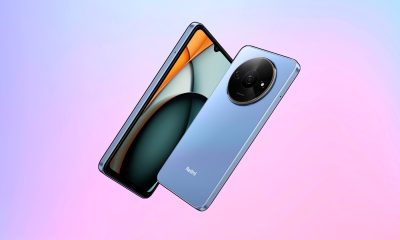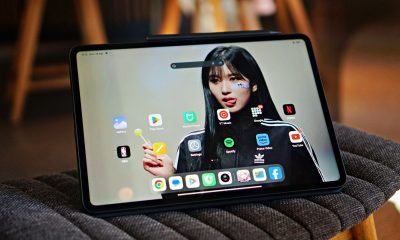India
Apple wants to sell used iPhones in India

So you trade in your current iPhone for the iPhone 6S (or Apple Store credit). But assuming they don’t just vanish into a poof of rose-gold smoke and move on to iPhone heaven when the store empties at night, have you ever wondered where old iPhones end up?
Chances are, they’ll meet a fate worse than being sold in the black market in the (mechanical) hands of Liam, Apple’s new robot designed to rip apart used iPhones so parts can be recycled and reused.
But if any of those scenarios don’t shake out, there’s a good chance your old iPhone could land in smartphone-obsessed India… to be sold again by its maker. Apple is making a second attempt in as many years to open an unprecedented import business to sell used phones in the country.
Understandably, the move has been met with strong criticism and even stronger opposition from homegrown phone makers, particularly Karbonn, Micromax, and Intex. But it is especially controversial because of the government’s Make in India program, which is supposed to boost local manufacturing.
In a statement to Bloomberg, Sudhir Hasija, chairman of Karbonn Mobiles, said Apple’s relentless push to sell second-hand phones in a country of 1.25 billion people might turn the Make in India initiative “into Dump in India.”
Thus far, efforts to entice foreign investors and bring more jobs to the country have been immensely successful, with India earning quite a reputation as a hub of electronics production. In fact, industry giants like Lenovo, OPPO, Xiaomi and Foxconn have already set in motion plans to build or assemble phones locally.
Apple flooding the market with refurbished iPhones that could sell for less than $US200 might spell trouble for the competition, even if four-fifths of phones sold in India are priced less than $US150, and some cost as little as $US35.
Considering the aspirational value of an iPhone — even one that has traded hands a few times — it’s hard not to imagine the U.S.-based technology company gaining traction in the Indian market, where it has a lowly 2 percent market share compared to Android’s 64 percent.
Apple’s chief, Tim Cook, said in a previous earnings call that he’s been trying to grow that number, and that his company would focus more on India. We’re seeing signs of that happening now: Apple has already filed an application to open retail locations in India.
But why would Apple go through all the trouble to make India its next iPhone waste bin? I think we know the answer to that: The country currently has the second-biggest smartphone user base after China, with as many as 220 million active users. Perhaps a few million of them could use a new-old iPhone?
If successful, analysts expect Apple to target iPhone sales of 10 million in India by next year, some of which may come from sales of used hardware.
[irp posts=”9890″ name=”Apple might start manufacturing products in India soon”]
Source: Bloomberg


There’s no doubt that India is a major market for technology. While the country has its own brand preferences outside of the world’s usual, everyone still wants to get a piece of the market. To the dismay of global companies, the country is realizing the potential of its own market. Effective immediately, India has started restricting imports for new laptops, tablets, and PCs.
Recently, India made some headlines in the smartphone industry. A few companies, including Apple, have poured funds into building factories in India. Locally produced devices will allow these companies to attract the Indian market better. With the new regulations out today, it looks like these brands are going to enjoy a head start over others who aren’t in the country yet.
The Indian government introduced a new restriction (via Reuters) against the importation of “laptops, tablets, all-in-one personal computers, and ultra-small form factor computers and servers” made from other countries. Customers, however, will get an exemption. Airline passengers can still bring in these devices in their luggage. Additionally, a single imported device is allowable when bought through e-commerce platforms. Companies can import their products only by applying for a special license.
In a nutshell, bulk orders without a license are out. The government is instead encouraging users to buy locally produced products as part of its “Make in India” program. At the very least, it’s not a total ban on foreign brands. For example, Dell, HP, and Lenovo are exempt from the regulations since they already have production facilities built in the country.
SEE ALSO: Samsung overtakes Xiaomi as top phone brand in India

Attacking a huge smartphone market is difficult. With preferences constantly evolving, it can get tricky to figure out the best lineup to capture most of a market. Samsung, however, has just done it. In the last quarter of 2022, Samsung has taken the crown from Xiaomi as the bestselling smartphone brand in India.
India is an important market for most smartphone brands. It’s one of the largest markets in the world. However, despite its size, the biggest players are often those who offer more affordable devices for consumers. Budget is the name of the game if a brand wants to make it big in the country.
Things are changing, though. According to new market data (via Reuters), Samsung has nabbed the throne from the former leader, Xiaomi. In the last quarter of 2022, the Korean brand grabbed 20 percent of the market, while the latter only got 18 percent.
In a trend dubbed as premiumization, Indian consumers are reportedly enjoying more disposable income, resulting in more willingness to buy pricier products. Additionally, the report hints that consumers have started equating lower prices with inferior quality.
With the market trending towards more premium products, Samsung took the lead with a lineup that consists more of midrange to premium devices. It will also be interesting to see if Apple, an even more premium brand, can also make a dent in the Indian market.
SEE ALSO: Buyer’s Guide: Samsung Galaxy S23 Ultra

For one of the largest smartphone markets in the world, India is one of the rarer countries where Apple does not outright dominate. Undoubtedly, the company is trying to change that. Ongoing job listings in India are suggesting that Apple is ready to open its first brick-and-mortar store in the country.
First reported by Financial Times, Apple has posted job openings in India for several retail roles including for the iconic Genius Bar. Another clue even indicates that some spots have already been filled ahead of time. A few employees in the country have reportedly posted about their new jobs on LinkedIn.
Unfortunately, none of the job listings show how many stores are planned and where they will be. Narrowing things down by a bit, a few of the confirmed employees are from Mumbai and New Delhi. The report also does not indicate when the stores will open. However, since a few have already been hired, a grand opening might be coming soon.
Apple has a lot to gain by strengthening its foothold in India. The country is an important stronghold for smartphone companies. However, the company might find things harder as time goes by. The country recently dictated that brands must switch to USB-C if they want to sell their devices in India. All over the world, Apple remains the last stalwart against adopting the more universal standard.
-

 Reviews1 week ago
Reviews1 week agorealme 12 5G review: It was enchanting to meet you
-

 Reviews5 days ago
Reviews5 days agoOnePlus 12R review: Making sense of OnePlus’ latest flagship
-

 Smartphones4 days ago
Smartphones4 days agoHuawei Pura 70 Pro Unboxing and First Impressions
-

 Buyer's Guide2 weeks ago
Buyer's Guide2 weeks ago2024 Samsung TV: Buyer’s Guide
-

 Smartphones2 weeks ago
Smartphones2 weeks agoInfinix NOTE 40 Pro+ 5G: Philippine pricing, availability
-

 Features2 weeks ago
Features2 weeks agoLOQ and LOAD: The Lenovo LOQ 2024 is for gaming and more
-

 News2 weeks ago
News2 weeks agoXiaomi Redmi A3 Philippine pricing, availability
-

 Gaming1 week ago
Gaming1 week agoStellar Blade review: Strenuous but Stylish






















